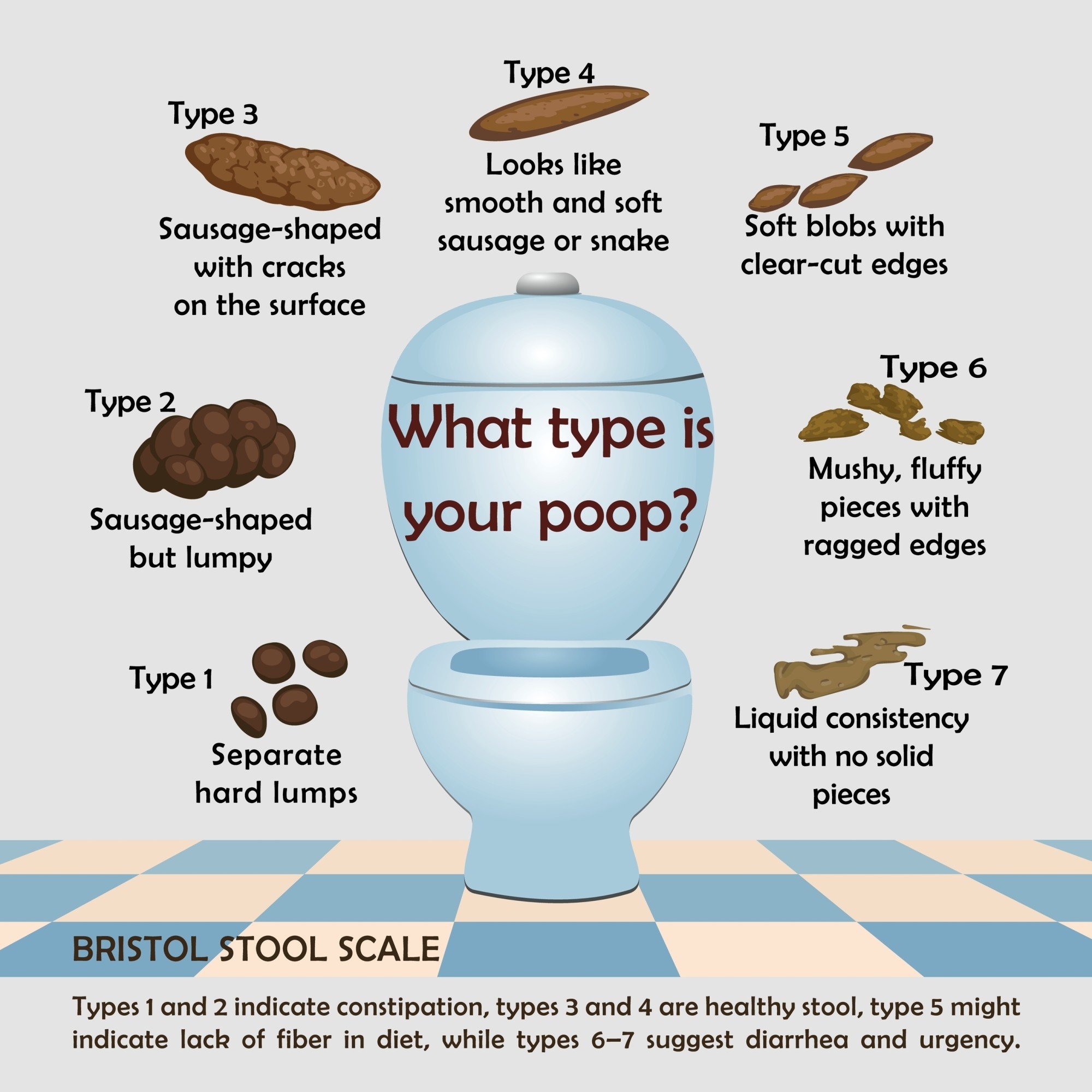
Explainer | What healthy and unhealthy poop looks like, when to be worried, how often you should defecate, and tips for great stools
- Unhealthy poop can signal a range of health conditions, from IBS to cancer, so it is essential you check what yours look like and can describe them to a doctor
- Also be aware of the sensations that come with pooping: straining, pain, bloating or a feeling of incomplete evacuation can be a sign of something wrong
Do you look into the toilet bowl after you have had a bowel movement? You should do.
You need to check what your poop looks like so you can notice changes or describe it if a doctor asks. It can tell us about our digestive health and much more.
From its texture to its colour, our poop offers insight into our overall health, says Hong Kong-based nutritional therapist Katia Demekhina. That is why two of the first questions she asks a client are how often they go to the bathroom and what their stools look like.
Women are more comfortable discussing bowel movements than men, she says, but “everyone apologises for being graphic”.
This is where the Bristol Stool Form Scale comes in handy, which classifies stool into seven types. The scale was designed by two doctors from the University of Bristol in the UK with the help of 66 volunteers who obliged by adopting different diets to affect the end product.

“Normal” poo, says Hong Kong gastroenterologist Choi Wai-lok, registers as types three, four or five on the scale. Types one and two are hard, six is very loose and seven liquid.
Normal poo, he adds, “can be all shades of yellow or brown, from mushy to lumpy”.
Our stool can provide an early warning sign that there is something wrong with us, so any change in its appearance should be monitored and reported to your doctor, especially if it continues for longer than a few days.
Blood should definitely be checked out.
“We have a caveat to never attribute blood in stool solely to haemorrhoids because haemorrhoids are so common. Cancers bleed, too,” Choi says.
“It’s not just bright red blood that signifies bleeding. Dark red or purple stool suggests the presence of blood somewhere in the digestive tract and needs urgent attention, as does black, tarry stool.”

Very pale, clay-coloured or white poop is serious and may be a sign of a liver, gallbladder or bile-duct problem. The characteristic healthy brown colour of stool is attributed to bile, a liquid the liver produces that helps digest fats in your food, Choi adds.
Sometimes certain foods can cause short-term colour changes – beetroot, for example. Green stool – despite the colour – is usually less worrying, and if it comes with diarrhoea is probably just an upset stomach.
Check to see whether poop comes with mucous – an excess amount could be a sign of an underlying health condition such as IBS or Crohn’s disease.
When in doubt, Choi recommends taking a photo to show your doctor. “We never mind looking at stool,” he says.
The intricate ecosystem of bacteria that lives in our digestive tract is not just in charge of our digestive processes – it has a profound effect on a huge range of bodily functions, which is why our poop is such a marker of overall health.

Back to the Bristol Stool Form Scale: it is not just colour that can tell us something about our overall state of health, it is consistency, too.
Constipation poses its own risks, she explains, as it leads to the delayed elimination of hormones and toxins that the liver processes and packages in stool.
“Without regular bowel movements, these substances linger in the body, increasing the risk of reabsorption and increasing systemic toxicity, disrupting hormonal balance and raising inflammation,” she says.

When experienced with a change in routine – when travelling, for example – constipation is not uncommon and usually resolves quickly. But persistent constipation should always be investigated as it could be a sign of colon cancer.
Be aware of the sensations that attend a bowel movement: if you are straining or if it comes with pain, bloating or a feeling of incomplete evacuation, this can signal something worrying.
[Abnormal poop is an] SOS signal from the body that something might not be right. We just need to find out what
Some patients with rectal cancer can experience tenesmus, a feeling of needing to poop right after pooping. That could be because there’s a tumour sitting in the rectum, so the body thinks there is still something it needs to get rid of.
A healthy poop is well formed and passed with any discomfort.
Talking about form or shape – it is not just whether a stool is too hard or too runny. Some colorectal cancers present with long or thin poo. That is because any tumour will create an obstruction, narrowing the space the stool has to push through; when the inside of the colon is narrowed, the poop becomes slimmer.
So how do you aim for that optimum poop – assuming your overall health is good and there is nothing nasty lurking?

An adult’s recommended daily fibre target is around 30g: for men slightly more, women slightly less, Demekhina says – but most people consume less than half that.
Being well hydrated is also important for bowel health. Demekhina explains that when fibre combines with water, it forms a soft gel, allowing for more effortless bowel movements. Aim for two to three litres of water daily to avoid constipation. Remember to drink more if you are suffering from diarrhoea.
Probiotics, the “good” bacteria that are found in fermented foods, may also play a role in the health of poop as they can change the bacterial population of the gut, especially when combined with prebiotics from fibre-rich foods, Demekhina says.
Demekhina says we can think of our abnormal poop as an “SOS signal from the body that something might not be right. We just need to find out what.”

